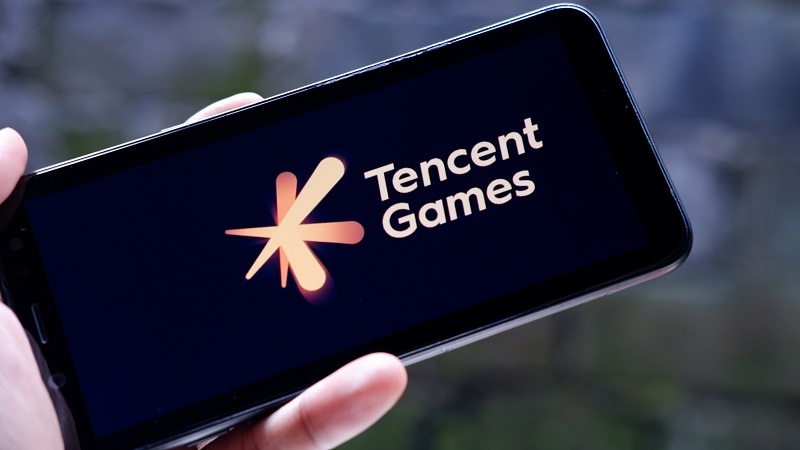
Nowadays, Chinese gaming apps are popular not only in China. They have gained growth in foreign markets in a short duration of ten years. These apps are currently conquering the game market around the world with smart localization, impressive marketing tactics, and a keen App Store optimization. This blog will discuss the Asian gaming apps becoming a global hit and some challenges they have faced, as well as the reasons behind their success.
The mobile games market is very prolific in the whole world, and Chinese developers are making the best of the proliferation. They no longer remain local heroes, but rather players on the international level.
There is a monstrous increase in the revenue of Chinese mobile game developers in the global arena. Such games as PUBG Mobile by Tencent and Genshin Impact by miHoYo have millions of fans across the globe. These games produce quality graphics, the gameplay is quite exciting and they are diverse in the number of languages they are provided in thus are easily played across the nations.
Industry reports show that the revenue of Chinese mobile game companies is enjoying above 40 percent sources in overseas markets. This is an indicator of the extent to which Chinese mobile games are now hitting overseas and how strong they are.
Chinese games have high levels of production, which is one of the significant reasons that lead to the success of the game in the world. In their games, there are:
Players love this attention to detail. Also, many Chinese games use free-to-play models with in-app purchases, making them accessible to a wide audience.
To succeed outside China, developers can’t just translate the game. They must localize it. This means adapting the content for different cultures, languages, and player expectations.
Good mobile game localization is more than just swapping out words. It involves understanding what players in each region enjoy. For example, Western players might prefer heroic themes and freedom of choice, while Japanese gamers might like visual novel elements and character development.
Chinese developers now hire local teams or partner with foreign studios to ensure that their content feels familiar to players in different countries. They change:
This cultural customization makes players feel like the game was made just for them.
Another part of localization is offering regional customer support. Players are more likely to trust and stay with a game if they know they’ll get help in their language. Many Chinese gaming companies now run 24/7 support centers for international users.
Spending habits vary across the world. In some countries, players spend more on cosmetic items. In others, they spend to progress faster. Chinese developers adjust in-game economies to suit these habits. This tailored approach improves user satisfaction and increases in-app purchases.
Even the best game won’t succeed without marketing. Chinese companies use a wide range of tactics to promote their games globally.
One way they boost awareness is through influencer marketing. Popular YouTubers, Twitch streamers, and TikTok creators are paid to play and review Chinese games. This builds trust and creates a viral effect.
Companies also run aggressive social media campaigns on platforms like Facebook, Instagram, and Twitter. They share video games, host contests, and interact with fans to build a community.
In addition to global promotions, developers run region-specific ad campaigns. For instance, in Japan, they might use anime-style ads, while in the U.S., they highlight action and battle scenes.
Some games also collaborate with local celebrities or brands to make a bigger splash. These smart marketing strategies help marketing Chinese gaming apps feel native to each market.
App Store Optimization games play a huge role in global success. Chinese developers use keyword research, attractive icons, videos, and localized app descriptions to rank higher on app stores. They also monitor reviews and adjust content based on feedback. This helps games reach more users organically.

Chinese developers are known for fast innovation. They quickly adapt to global trends and introduce new features to keep their games fresh.
Many Chinese games now support cross-platform gaming—you can play on your PC, phone, or console. This flexibility attracts a broader audience and increases engagement.
Players today enjoy connecting with others. Chinese games offer real-time multiplayer battles, chats, and guild systems. This social connection boosts user retention and makes the games more enjoyable.
To keep the game experience fresh, developers add seasonal updates, time-limited events, and new content regularly. These features encourage daily logins and long-term play.
While Chinese games are doing well globally, there are still some challenges to face.
Geopolitical tensions sometimes create suspicion toward Chinese apps. Some countries have restricted Chinese apps due to privacy concerns. To overcome this, many developers form partnerships with Western companies or create local branches.
Privacy regulations like GDPR in Europe require developers to follow strict data protection rules. Chinese companies have to update their systems and processes to stay compliant, which can be costly and time-consuming.
The global mobile games market is very competitive. Players have thousands of games to choose from. To stand out, Chinese developers must constantly improve quality and user experience.
Here are some examples of Chinese gaming apps' global success stories:
This open-world RPG has been a massive global hit. With stunning graphics, engaging gameplay, and excellent localization, Genshin Impact is one of the top-grossing games worldwide.
PUBG Mobile (Tencent) became a global phenomenon thanks to Tencent’s marketing, frequent updates, and localization efforts. It is especially popular in India, Southeast Asia, and the Middle East.
Developed in partnership with Activision, this game brought the famous Call of Duty franchise to mobile users. It’s a great example of East-West collaboration.
With its idle gameplay and strong art style, AFK Arena became a hit in multiple markets, especially in Europe and the U.S.
The Chinese gaming apps have had quite an international movement. Before, we had local Chinese developers who managed to make it to the international market, to have acquired the skills of localizing mobile games and performing successful marketing of Chinese gaming apps, and a good strategy of App Store Optimization games, leading Chinese game companies and developers have now proved that they can make it in the global market. Technology and tastes may change, but there is one thing certain: Chinese mobile games are not going away, and they are not only going to have influence in the world, but many more, as well.
This content was created by AI